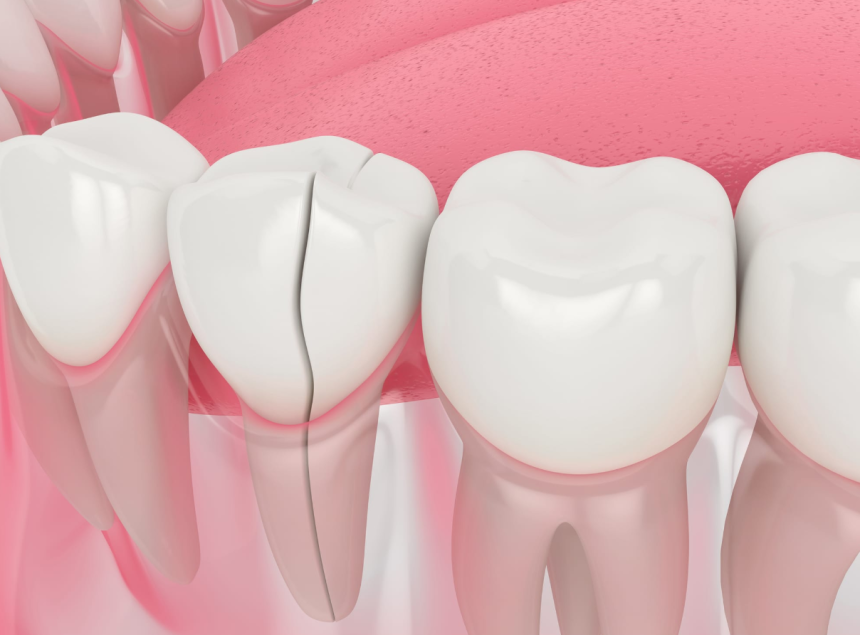Have you ever experienced that sharp pain in your teeth when eating or drinking something hot or cold? Or maybe you’ve noticed tiny cracks on your tooth enamel but aren’t sure what to do about it? Don’t worry, because today we’ll be exploring the world of cracked teeth and what solutions your dentist might recommend. From preventative measures to restorative treatments, this post will give you all the information you need to keep your smile healthy and happy. So sit back, relax, and let’s get cracking (pun intended)!
Causes Of Cracked Teeth
The causes of cracked teeth can vary greatly and aren’t always easily preventable. Many times, accidents or injuries can cause cracks in our teeth that we simply cannot control. However, there are certain habits that can increase the likelihood of a tooth cracking.
One common cause is biting on hard objects such as ice or pens. This puts enormous pressure on the teeth and can cause them to fracture over time.
Another culprit is bruxism, also known as teeth grinding. People who grind their teeth while asleep or during stressful situations often experience tiny cracks in their enamel that gradually worsen over time.
Certain dental treatments like fillings also make your tooth more prone to cracking; this happens because removing decayed portions of the tooth makes it weaker than before, which increases the likelihood of fractures later on.
Finally, age also plays a role in cracked teeth – older patients have naturally worn-down enamel that’s more susceptible to breaking under stress from normal chewing and biting.
Fix #1 – Implant
If a cracked tooth has caused significant damage, your dentist might suggest looking into The benefits of Dental Implants. An implant is essentially an artificial replacement for the root of a natural tooth that can anchor either a dental bridge or individual crown. The procedure involves surgically placing a small titanium screw into your jawbone where it will fuse and act as support to mount prosthetic teeth onto.
Implants are incredibly durable and long-lasting with proper care, making them worth the investment in both time and cost. They also offer superior aesthetics when compared to dentures or bridges since they look almost identical to natural teeth.
The procedure may require several appointments over several months from start to finish due to healing times between stages; however, many patients find it well worth their time for results so favorable that implants often improve overall oral health in addition to fixing the original problem.
Fix #2 – Filling
Most of us are likely familiar with fillings. This is a standard dental procedure that involves filling in the gaps between teeth caused by cracks or decay. The type of filling material used depends on how severe your crack is and where it’s located in your mouth.
For superficial cracks (those that only affect the surface of the enamel), dentists will usually use composite resin fillings. For deeper cracks, however, a more robust material such as gold or porcelain may be required to provide better support for the weakened tooth structure.
It’s essential to maintain good oral hygiene after getting any kind of dental work done. A regular routine check-up with a trusted dentist will ensure that your fillings last longer and keep an eye on if there are any other issues arising from having a cracked tooth previously.
Fix #3 – Crown
The third fix for a cracked tooth we are going to talk about is a crown, also known as a dental cap. This treatment involves covering the damaged tooth with a custom-made prosthetic that looks and feels like a natural tooth. A crown is an effective solution when the crack is too large to be treated with fillings or bonding.
Crowns can be made from different materials such as porcelain, ceramic, resin, metal, or combination of these materials. Your dentist will recommend the best material based on your specific needs and preferences.
The procedure typically involves two visits to the dentist’s office. During the first visit, your dentist prepares the affected tooth by removing any decay or damage and reshaping it to fit snugly underneath the crown. Then they take impressions of your bite which are used to create customized crowns in a dental laboratory.
At your second visit after about 2-3 weeks later you receive permanent crowns which are cemented onto your teeth.
How To Prevent Teeth Cracking
Teeth cracking can cause immense pain and discomfort in day-to-day life. However, preventing teeth from getting cracked is easier than you think!
Firstly, wear a mouthguard when participating in sports or any physical activity that could result in an impact to the face. This will help protect your teeth from any sudden shock that could cause them to crack.
Secondly, avoid chewing on hard objects such as pens or ice cubes. Not only can they damage your teeth but also create stress leading to cracks.
Thirdly, try not to grind your teeth at night by wearing a night guard. Teeth-grinding (bruxism) is one of the most common causes of tooth fractures.
Lastly, regular visits with your dentist will allow early detection of signs before cracking occurs and proper care techniques; like using fluoride products regularly if recommended by your dentist can keep strengthening and protecting enamel against future breakage.
Conclusion
Cracked teeth can be daunting and frightening, but with the right guidance from your dentist they don’t need to be so try and make a same day dentist appointment if you believe you’ve got a cracked tooth and get the proper professional help. With proper dental care, cracked teeth can often be mended and restored without having to extract them entirely. By listening carefully to your dentist’s advice you will ensure that you are doing what is best for your oral health in the long run. We hope this article has provided helpful insight about what a dentist might recommend when it comes to treating cracked teeth – here’s wishing you luck on your journey towards perfect dental health!















